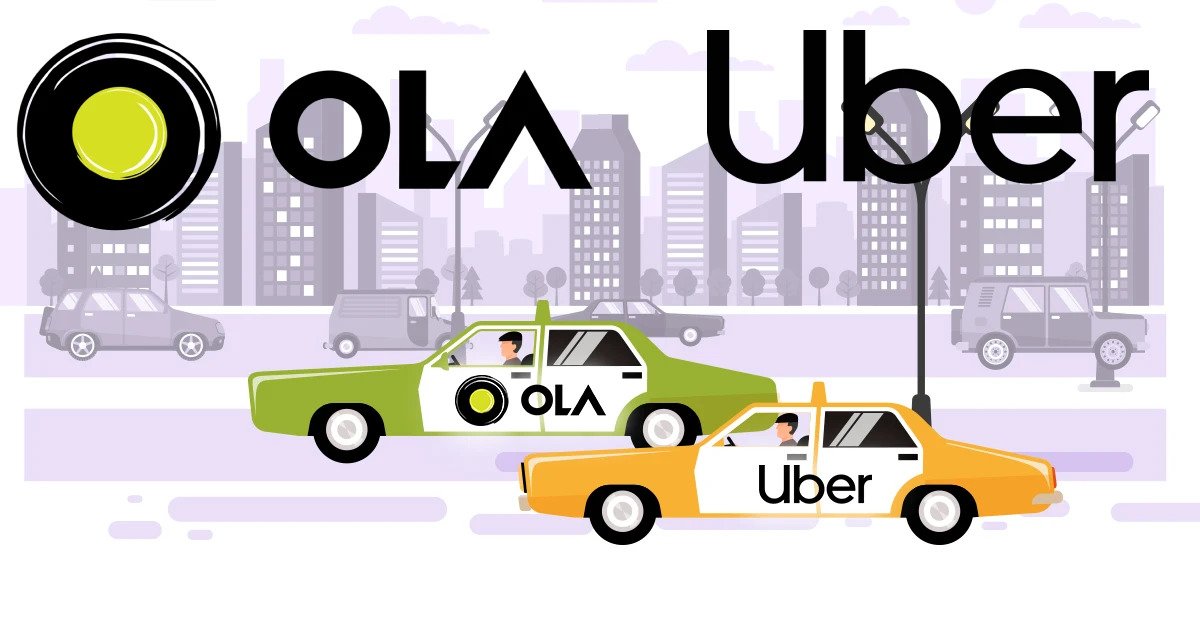
Introduction
In the rapidly evolving landscape of urban transportation, ride-sharing platforms like Uber and Ola once heralded a new era of convenience, transforming the way people commute within cities. However, over time, these giants of the gig economy have faced a shifting tide of customer sentiment. What was once seen as a reliable and efficient mode of transportation for even non-urgent city rides has encountered growing scepticism among customers?
This shift in trust reflects a complex interplay of factors that have caused both Uber and Ola to lose favor among their once-loyal clientele. From concerns about safety and quality control to pricing inconsistencies and customer service experiences, this phenomenon marks a critical moment in the evolution of ride-sharing services, prompting a closer examination of the underlying reasons behind the erosion of customer confidence.
Keep in mind that the situation might have evolved since then, so it's a good idea to check more recent sources for the most up-to-date information. Here are some potential reasons:
Safety Concerns:
Reports of safety issues, including incidents of assault, harassment, or accidents involving drivers and passengers, have led to concerns about the safety of using ride-sharing platforms. Customers may lose trust if they perceive that the companies are not doing enough to ensure their safety during rides.
Driver Behaviour:
Instances of rude, unprofessional, or even fraudulent behaviour by drivers can erode trust. Customers expect a certain level of professionalism and courtesy from drivers, and negative experiences can lead to a loss of trust in the platform as a whole.
Pricing Transparency:
Pricing practices, such as surge pricing during peak hours or events, can lead to customer dissatisfaction. If customers feel that they are being charged unfairly or that pricing is not transparent, it can affect their trust in the platform.
Quality Control:
Inconsistent service quality, including issues like unclean vehicles, poor driving behavior, or drivers who lack knowledge of routes, can contribute to a negative perception of the platform.
Data Privacy Concerns:
Concerns about how user data is collected, stored, and used by ride-sharing platforms for advertising or other purposes can lead to privacy concerns and a loss of trust.
Customer Support:
Difficulties in reaching customer support or receiving prompt and satisfactory resolutions to issues can lead to frustration and a perception that the platform does not prioritize customer concerns.
Regulatory Issues:
Ongoing legal battles and regulatory challenges faced by ride-sharing companies in various regions can contribute to an atmosphere of uncertainty and mistrust among customers.
Competitor Alternatives:
The rise of alternative ride-sharing platforms or transportation options, such as local taxi services, public transportation, or even other ride-sharing apps, can give customers more choices. If these alternatives provide a better experience or address the above issues more effectively, customers may switch to them.
Negative Media Coverage:
Bad press, including stories about accidents, safety incidents, or negative experiences, can influence public perception and contribute to a loss of trust in the platform.
Lack of Brand Loyalty:
Ride-sharing platforms might not have developed strong brand loyalty among customers, making it easier for them to switch to alternative services when trust is compromised
Conclusion:
The dwindling trust of customers in ride-sharing platforms like Uber and Ola for non-urgent city rides underscores a broader shift in consumer attitudes and expectations. What was once a revolutionary solution to urban transportation challenges has encountered roadblocks that have significantly impacted customer confidence. Issues ranging from safety concerns to inconsistent pricing models and subpar customer service experiences have collectively eroded the once-strong trust these platforms enjoyed.
However, amid this changing landscape, alternatives like booking an airport cab have emerged as a viable solution for reliable and stress-free transportation, especially when navigating airport transfers. Companies that specialize in airport cab services provide a seamless and dedicated mode of transportation, addressing many of the concerns that led to the decline in trust for ride-sharing platforms. From consistent pricing and professionally trained drivers to efficient customer support, these services offer a level of reliability that can be particularly valuable during non-urgent city rides or airport transfers.
As the urban transportation industry continues to evolve, it is clear that customers are seeking providers that can deliver not just convenience, but also a consistent and trustworthy experience. While ride-sharing platforms may work to regain customer confidence, the emergence of specialized services like book airport cab highlights the importance of offering tailored solutions that cater to the evolving needs and expectations of today's discerning travelers.
follow us on
Mojoboxx